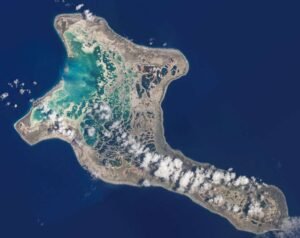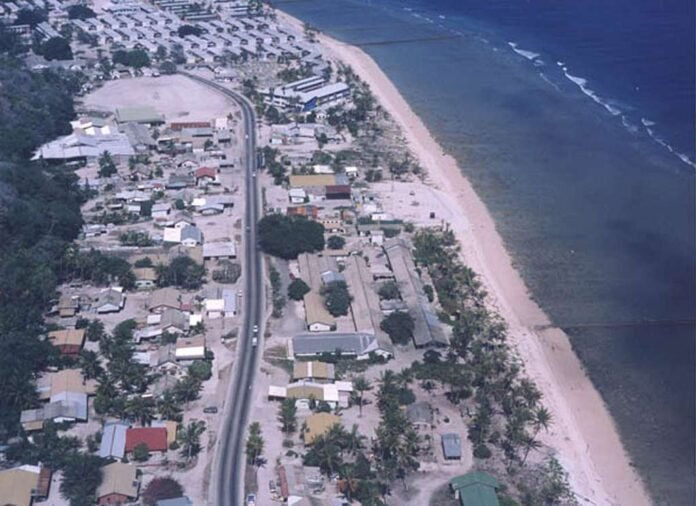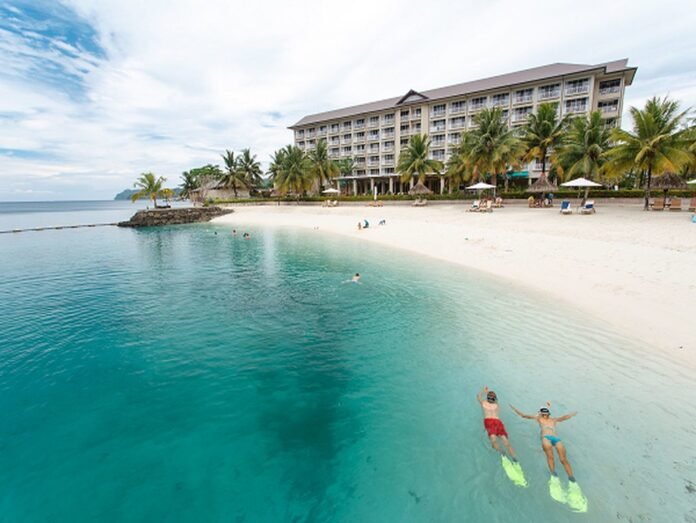Kiribati’s healthcare is mainly run by a public system offering free, universal care to all citizens and residents. Private insurance is minimal, mainly used by expatriates and some employers for additional services, especially advanced or overseas care. Both systems aim to support health and financial protection but differ in structure, access, funding, and who they serve.
Key Differences
1. Structure and Availability
Kiribati’s public healthcare is run by the state without a formal insurance system. The Ministry of Health offers services directly at government hospitals and clinics. In contrast, private health insurance is available through international firms like MSH International, Bupa Global, Cigna Global, AOC Insurance Broker, and the local Kiribati Insurance Corporation. These companies provide structured plans with specific benefits and agreements for policyholders.
2. Cost and Financing
Public healthcare is free for citizens and residents, funded by taxes and external aid. Private health insurance, however, involves paying monthly or yearly premiums, costing between $50 and $300+, based on the provider and coverage.
3. Coverage Scope
The public healthcare system prioritizes primary care, hospitalization, medication, preventive services, and maternal health. Yet, it lacks in specialist care, advanced diagnostics, and complex procedures. In contrast, private insurance often covers emergency evacuation, international hospitalization, specialist treatment, dental, vision, and repatriation services.
4. Eligibility and Access
Everyone can access public healthcare. Private insurance isn’t required and is mainly for expatriates, diplomats, business travelers, or NGOs, not the general public.
5. Overseas Treatment
Public healthcare occasionally sends patients abroad, mainly to Fiji or New Zealand, but only for urgent cases with government approval. In contrast, private insurance ensures international access and often covers air evacuation, providing more dependable support during medical emergencies.
Key Similarities
Despite their structural differences, public and private health systems in Kiribati share certain similarities:
- Purpose: Both aim to protect individuals from catastrophic health expenses and ensure access to care.
- Preventive Emphasis: Both systems emphasize preventive services like vaccinations and maternal care.
- Supplementary Roles: Private insurance enhances public healthcare by providing quicker or specialized care.
- Referral System: Both systems refer patients abroad when needed, but the private system is more adaptable.
Public Health Insurance in Kiribati: Structure, Features, and Performance
Kiribati’s healthcare system is a single, universal model managed by the Ministry of Health and Medical Services. All citizens and legal residents receive free healthcare services. This system’s analysis includes its cost, coverage, accessibility, financial aspects, and consumer satisfaction.
1. Kiribati Public Health System (Managed by MHMS)
Cost to the Patient
Healthcare in Kiribati is completely free for citizens and legal residents. This covers hospitals, health centers, and clinics. No premiums, deductibles, or co-payments are needed.
- For locals: All public healthcare services are provided at no cost.
- For foreigners and tourists: They must pay for medical services or use private/travel insurance for coverage.
Available Services / Coverage Features
The public system provides a comprehensive array of services, focusing on basic and essential care, including:
- Primary Care: Routine doctor visits, chronic disease management, and general medical consultations.
- Preventive Services: Immunizations, family planning, antenatal care, health education, and screenings.
- Hospitalization: Free inpatient care in government hospitals across main and outer islands.
- Emergency Care: Available at major hospitals and health centers, though limited in advanced trauma services.
- Pharmaceuticals: Common medications are dispensed free of charge at public health facilities.
- Dental and Mental Health: Basic services are available, though access to specialists is limited.
- Overseas Referrals: Serious cases may be referred to regional hospitals in Fiji or New Zealand, sometimes with partial government funding.
Open for All or Limited
- The system is universal—open to all citizens and legal residents of Kiribati.
- There are no enrollment processes or insurance cards; eligibility is automatic by citizenship or permanent residence.
- Tourists and temporary visitors are excluded from free services and must pay out-of-pocket.
Core Financial Features
- Government-Funded: Entirely financed through general tax revenues and external aid, particularly from international donors like Australia, New Zealand, and WHO.
- No Formal Insurance Fund: There is no centralized insurance scheme or pooling system; funding flows directly from the government to healthcare providers.
- Resource Allocation: Budgets are allocated annually, with health consuming a significant portion of national expenditure due to the country’s commitment to universal care.
- Aid Dependence: Due to economic constraints, international development aid plays a critical role in financing infrastructure, workforce training, and referral systems.
Consumer Satisfaction Score
While no official score is published, satisfaction is considered moderate to high among citizens, mainly due to:
- Cost-Free Access: Highly appreciated by low-income and rural populations.
- Proximity to Services: About 90% of the population is within 30 minutes of a healthcare facility.
- Challenges: Limited access to specialists, modern equipment, and emergency air evacuations slightly reduce overall satisfaction. However, the consistency and affordability of services contribute to positive community perception.
Top Private Health Insurance Providers in Kiribati: Coverage, Cost, and Consumer Insights
Kiribati lacks a strong local private health insurance sector, but a few international and regional insurers serve expatriates, business travelers, NGOs, and some local employers. These insurers provide comprehensive plans to fill gaps in the free public system, such as overseas care, medical evacuation, and specialist services. Here are the leading private health insurance options for those in or visiting Kiribati.
1. MSH International
- Type: International Provider
- Cost: Approx. USD $100–$400/month, depending on age, location, and coverage
- Coverage Features: Offers full-spectrum global health plans including emergency evacuation, inpatient/outpatient care, maternity, dental, vision, and mental health services.
- Open to: Expatriates, NGOs, and business travelers
- Core Financial Features: Premium-based, with optional deductibles and co-payment options to reduce costs. Offers direct billing in many global hospitals.
- Consumer Satisfaction Score: 4.5/5 — praised for multilingual support, broad international network, and fast claims handling.
- Official Website: https://www.msh-intl.com
2. Cigna Global
- Type: International Provider
- Cost: USD $120–$500/month, based on coverage area and plan tier
- Coverage Features: Modular global plans that allow customization, including routine care, specialist visits, evacuation, prescription drugs, and hospitalization.
- Open to: Open globally — available to expats, residents, travelers, and employees.
- Core Financial Features: Flexible premium structure with tiered coverage options. Discounts for group or family plans.
- Consumer Satisfaction Score: 4.6/5 — strong reviews for global claims support, coverage flexibility, and customer service.
- Official Website: https://www.cignaglobal.com
3. Bupa Global
- Type: Premium International Provider
- Cost: Typically USD $200–$600/month, depending on age and benefits
- Coverage Features: Known for luxury international healthcare, including private hospital access, second medical opinions, telemedicine, and evacuation.
- Open to: High-net-worth individuals, expats, corporate employees
- Core Financial Features: Premiums on the higher end; excellent financial stability and high claim approval rates.
- Consumer Satisfaction Score: 4.7/5 — customers highlight VIP-level service, global hospital access, and fast reimbursement.
- Official Website: https://www.bupaglobal.com
4. AOC Insurance Broker
- Type: International Insurance Broker
- Cost: Varies widely — plans start around USD $80/month
- Coverage Features: Provides customized insurance plans for expats in Kiribati, covering travel, health, and emergencies. Collaborates frequently with Cigna, Bupa, and other international insurers.
- Open to: Expats, missionaries, foreign workers, and NGOs
- Core Financial Features: Broker model allows comparison of plans across insurers; plans include optional deductibles and tiered benefits.
- Consumer Satisfaction Score: 4.3/5 — appreciated for flexibility and broker assistance in claims handling.
- Official Website: https://www.aoc-insurancebroker.com
5. Kiribati Insurance Corporation (KIC)
- Type: Local Insurer
- Cost: Unknown for health-specific plans; primarily offers general and accident insurance
- Coverage Features: Health coverage is limited and may be bundled into accident or employee benefit packages.
- Open to: Local residents, government employees, and businesses
- Core Financial Features: Operates under government oversight. Coverage is limited, with most serious medical needs requiring public healthcare or international evacuation.
- Consumer Satisfaction Score: 3.8/5 — valued for local support, but limited benefits and coverage options lower its rating.
- Official Website: https://kiribati.gov.ki/services/kiribati-insurance-corporation
READ MORE: Private and public health insurance of Samoa (Make informed choices)


